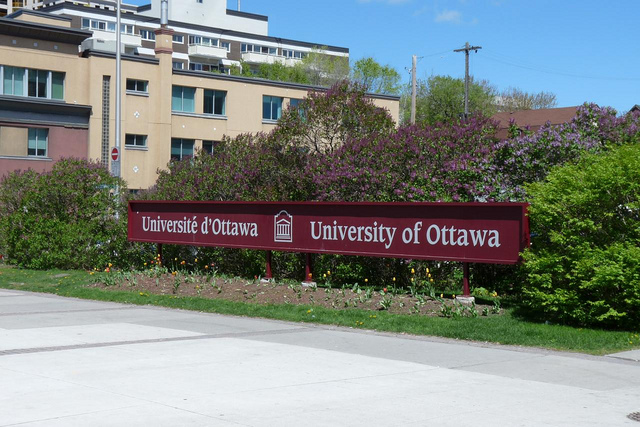It’s that time of year again at the University of Ottawa; most students have left campus for the summer, presenting an opportune time for President Allan Rock and his friends on the Board of Governors to hike students’ tuition fees. This will be the ninth consecutive year that the Board of Governors intends to raise tuition fees for U of O students.
The proposal on the table is to hike our tuition fees, already well above the national average, by the maximum legal amount under the current provincial tuition fee framework: 3 per cent for domestic undergraduate students and 5 per cent for domestic graduate students as well as those in professional programs. International student fees remain entirely unregulated and are hiked each year on the whim of the Board; last year they were raised 10 per cent. Students in Ontario continue to pay more for less, as we sit in the largest classrooms and experience the worst student-to-professor ratios in Canada.
The Board’s careless decision will force students to pile more debt onto an already insurmountable load in order to pursue their education. On average,
undergraduate students are graduating with $37,000 worth of debt. Collectively, students in Canada owe $28.5 billion in loans associated with pursuing post-secondary education.
These hikes also force students to work longer hours, often at multiple jobs, in order to survive. An undergraduate student in Ontario making minimum wage would have to work 708 hours, or approximately 18 weeks full-time, to cover one year of tuition fees; excluding the costs of housing, transit and groceries. This burden is highlighted when we note that the second most used food bank in the Ottawa area is run by the Student Federation of the University of Ottawa. The enormous stress on students today also has a significant impact on their mental health. Tuition fees also disproportionately impact low-income students, racialized students, queer students and students with disabilities.
The tuition fee vote by the Board of Governors is a decision that significantly impacts our lives and the meeting where it is taking place is being closed to students — the largest stakeholders of the university. Year after year, the Board attempts to stifle student opposition by limiting the number of possible student seats on the Board, and prevents students from being present and demonstrating their strong opposition to tuition fee hikes. This is accomplished by last minute strategies such as undisclosed room changes, and hiring security personnel to prohibit student access. Regardless, students have shown their dedication to accessible education by taking action at the annual tuition fee vote. Last year, students interrupted the debate to serve Board members a student delicacy: Kraft Dinner. Upon dinner being served, the Chair of the Board, Robert Giroux, single handedly
adjourned the meeting and the tuition vote was held via secret e-mail. (Spoiler alert: it passed.)
A Board comprised of 29 members, of whom only three are students, makes these decisions. The overwhelming majority of these members are corporate heads and upper administrative bureaucrats, strategically appointed based on political allegiances. Manulife Financial, Bristol-Myers Squibb and AMPRAX Inc. all hold seats on the highest decision making body of our university. This decision will likely not be a hard one for these individuals as their children attend our university free of charge, and Allan Rock himself takes home a salary of $395,000 — more than that of Prime Minister Stephen Harper. It would be an understatement to say that these members are vastly out of touch with student realities.
Students will be demanding to be let into this closed Board of Governors vote
on their tuition fees Monday at 5:30 p.m. to voice their opposition to the
proposed tuition fee hikes.
Enough is enough.
Anne-Marie Roy is the President of the Student Federation of the University of
Ottawa.
Image: Flickr/MDV



